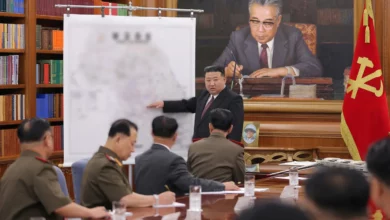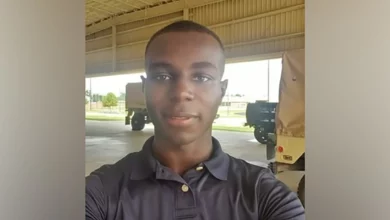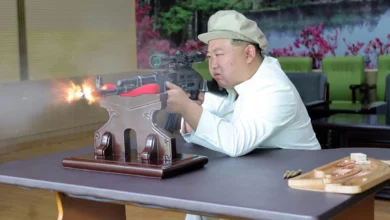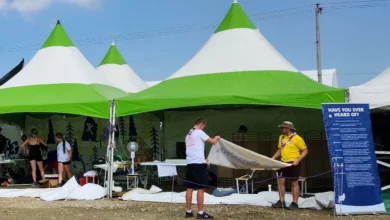
SEOUL (Reuters) – Some 90 families from the two Koreas were reunited in the North on Monday, weeping and embracing each after being torn apart for more than six decades by the 1950-53 Korean War.
The brief reunions, which will last only 11 hours, are the first in three years, and took place in the North’s tourist resort on Mount Kumgang after the two Koreas renewed exchanges this year following a standoff over Pyongyang’s nuclear and missile programs.
North Korean leader Kim Jong Un and South Korean President Moon Jae-in agreed to the latest round of reunions during their first summit in April.
About 330 South Koreans from 89 families, many of them in wheelchairs, gathered with 185 lost relatives from the North, embracing with tears, joy and disbelief. Some were struggling to recognize family they have not seen in more than 60 years.
“Uncles, take my deep bow,” said Seo Soon-gyo, 55, as her 87-year-old father, Seo Jin-ho, met with two younger brothers, Chan Ho and Won Ho.
Kim Gyong Sil and Gyong Yong, 72 and 71, wearing light violet traditional dress of hanbok, stood nervously staring at the entrance before their 99-year-old mother Han Shin-ja turned up. They could not speak for minutes, wailing loudly and rubbed their cheeks and hands.
“When I fled home in the war,” said Han, failing to continue as she choked up with emotions.
The separated families are victims of a decades-long political gridlock between the neighbors, which has escalated over the past several years as Pyongyang rapidly advanced its weapons programs.
More than 57,000 South Korean survivors have registered for the brief family reunion which often ends in painful farewells.
For years, Seoul has been calling for regular meetings between separated families including using video conferences, but the reunion programs often fell victim to fragile relations with Pyongyang.
During his summit with US President Donald Trump in June, Kim pledged to abandon his country’s nuclear programs if Washington provided security guarantees, but the two sides have since struggled to agree on how to reach that goal.
South Korean president Moon, himself a member of a separated family from the North’s eastern port city of Hungnam, said on Monday that the reunions should be sharply scaled up and held on a regular basis and include exchanges of visits and letters.
“It is a shame for both governments in the South and the North that many of the families have passed away without knowing whether or not their lost relatives were alive,” Moon told a meeting with presidential secretaries.
“Expanding and accelerating family reunions is a top priority among humanitarian projects to be carried out by the two Koreas.”
Ninety-three families from both sides of the border were initially scheduled for a three-day gathering from Monday, but four South Korean members canceled their trip to the North at the last minute due to health conditions, the Red Cross said.
Starting Thursday, there will be a meeting of another 88 groups of relatives, 469 from the South and 128 from the North, according to Seoul’s Unification Ministry.
The brief family reunions, which began in 1985, can be a traumatic experience for the aging survivors, they say. And time is running out, with many of them aged 80 or older.
Around 132,600 individuals are listed as separated families as of end-July. Of the 57,000 survivors, 41.2 percent are in their 80s and 21.4 percent are in their 90s, according to government data.
The oldest South Korean participating in the latest gathering is 101 years of age.
“Most participants are elderly and many of them are suffering from hypertension, diabetes and have underlying medical conditions. Ahead of the reunions, we are thoroughly checking their health conditions so that they can attend the events as planned,” said physician Han Sang-jo.
Many of the family members brought gifts for their North Korean relatives. Socks, underwear, basic winter jackets, medicine, toothpastes and food are the most common items, with gifts deemed too extravagant unlikely to pass muster with Pyongyang authorities.
“I’ve prepared for him some household medicine including digester and headache pills, nutritional supplements as well as some daily necessaries,” Lee Soo-nam, a 76-year-old South Korean, told Reuters before meeting his older brother in the North separated by the war.
“He is very old so I really want to express my gratitude for being alive for a long time.”
Reporting by Hyonhee Shin and Joyce Lee in SEOUL, Hyun Young Yi in SOKCHO, and Joint Press Corps; Editing by Soyoung Kim and Michael Perry.




